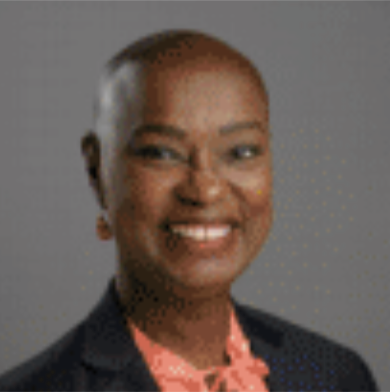Advocacy in Motion
8 MINS to read

Advocating for myself and being my own best advocate for my medical concerns has proven to be an awesome tool in my toolbox of life. This tool did not fit into place immediately as I was diagnosed with metastatic breast cancer over 22 years ago. Through several recurrences and a few side effects from treatments and the diagnosis itself, I had to refocus and direct my attention to the things that I felt would help my overall health. At that moment, I had to condition my mindset to a new direction and channel my thinking on living in the moment. Instead of preparing to die, which is what I was investing more time towards, I had to flip that mindset to preparing to live, moment by moment. It was a great declaration that changed the ball game for me.
While I find it great to advocate for myself, I also know the importance of advocating for others, especially those who have not reached that point in their life or who might not be familiar with the process. To me, it is very important to carry them along as well. I am like a mother hen, I love to gather others under my wings and carry them along with me, especially when I know that it is some type of knowledge that can benefit them as well. I always find myself saying to other MBC patients, “We are all in this together!” We are connected in some way, and maybe our combined advocacy efforts can help each other.
Over time, I have found myself at various stages in my advocacy work, from the very beginning of my diagnosis, up until now. I can see the growth, not only in my personal health but in others as well. When I was first diagnosed with metastatic breast cancer in November 2001, I was quite clueless to what my diagnosis entailed. At that time, I had to wrap my head around several factors that came along with it.
First, I was not even aware of the signs that my body was notifying me of my pending metastatic diagnosis. Since my daughters were still very young, ages 2 and 4, before my diagnosis, I was still lifting them and doing various activities that a mom would be doing with her young children. Sure, I was tired, but I thought that was normal and a part of motherhood. Yes, I had back pain, but again, I thought that was just because it came from some of my strenuous activities with my babies. After the back pain persisted and I could not find any relief, I knew that it was time to take further action.
I was beginning to advocate for myself all those years ago, and I did not even realize it. After my Stage III breast cancer diagnosis initially metastasized to my bones, lungs, and liver my oncologist did not have much hope for my survival and suggested that I go home and prepare for the worst. I was told that it was“terminal.” “Terlisa, go home, quit work, and get your life in order,” she said. Even though I heard those words, loud and clear, I did not quite comprehend them in that manner. The metastatic diagnosis took me by surprise, but my mind and thought process went immediately to my babies, and then it was directed to my family and friends who all depended on me. My self-advocacy was put into motion at that point because I knew that it was up to me to get myself into a mental mindset that would catapult my actions into full gear. This also included trying to get my physical body ready for the impending mission ahead of me. Although this type of advocacy was all new to me, I went full speed ahead with whatever I thought would help me get through my diagnosis.
Because of the bone metastasis, I was in some type of ongoing pain, day in and day out. My bones were starting to get brittle, and I ended up with several fractures and had to receive a total hip replacement due to avascular necrosis of my right femur — it was bone-on-bone at the time of surgery. There were times when my body was just sick and tired of being sick and tired, and I ventured off into thinking that I did need to prepare to die. In my mind, I had to condition my daughters to prepare to live a life without me. I was starting to put more effort into preparing to die, instead of preparing to live. Once this type of thinking became clear to me, I hit the pause button and started channeling my thought process into a different direction. I started advocating for myself more and focusing on what brought me pleasure or happiness in life. Before long, I just started living my best life in every moment that I had at that present time.
After recovering from several surgeries throughout my MBC diagnosis, my body began to take a toll, and I was not getting as much exercise as I knew I needed. While on going bone pain and joint aches were steadily creeping into my body, I decided to act. I took on physical health care advocacy so that I could try to ease some of my pain while also learning what I needed to do to make it a lifetime improvement for myself and others that I could encourage through their pain ordeals.
Once I got more involved in my physical health, activities like daily walking and yoga exercises were a big help. The exercises started easing some of my aches and pains, which led to a better attitude for my overall self. It started to go hand in hand for me. My physical health was improved by my mental health. Thankfully, the cancer institute that I go to for treatment has many free offerings to improve your physical health. One of the classes that I have attended included yoga, which concentrated on stretching and muscle strengthening, which has greatly improved my health. I find myself trying to get others involved because I know how these tools have helped me through out my journey. It just all comes down to the fact that if I know of something that has helped me, I try to help advocate for others to try it as well. Staying involved in policy advocacy for metastatic breast cancer will always be something important for me and will remain in the forefront of my continued advocacy roles. Whether I am involved in policy efforts on the local level in the state of Florida as a patient advocate through the Florida Breast Cancer Foundation or as a patient advocate through the national level at our nation’s capital in Washington, D.C. with organizations like METAvivor Research and Support, Tigerlily Foundation and the National Breast Cancer Coalition, to help promote legislation that will eliminate the waiting periods for federal disability insurance benefits and Medicare coverage for patients who are undergoing treatment for MBC through the Metastatic Breast Cancer Access to Care Act.
As a metastatic breast cancer patient, I will always be in motion for MBC awareness, policies, research and support so that this disease would be more of a chronic illness instead of a deadly one. I am completely heartbroken from seeing so many of my friends dying from this disease.
Terlisa Sheppard • (she/her) • Retired Accountant. Diagnosed at 31 and 34. IDC, StageIII, Triple Positive, and then Stage IV. Terlisa was diagnosed during her 3rd trimester of pregnancy. She rushed into delivering her baby at 34 weeks gestation to prevent additional harm to herself or her unborn child. She also had a daughter who had just turned 2 years old before her diagnosis. At age 34, she was diagnosed with Stage IV metastatic breast cancer, and since that time, she has had metastases to her bones, lungs, liver, spine, abdomen, and brain. Terlisa has been living with metastatic breast cancer for almost 23 years. • @TerlisaFights

Rethink is honoured to be the guest editor for Wildfire Magazine’s annual Metastatic Breast Cancer issue focusing on Advocacy.
This piece has been republished with permission from WILDFIRE Magazine, the “MBC Advocacy” issue issue, published originally October 19, 2024. More information available at wildfirecommunity.org
WILDFIRE Magazine is the only magazine for young women survivors and fighters of breast cancer under 45 years old. Headquartered in Santa Cruz, California, WILDFIRE is a beautiful, story-based bi-monthly magazine published on different themes relevant to young women survivors, from stage 0 to stage IV. Beautiful and ad-free! Visit wildfirecommunity.org for more info.